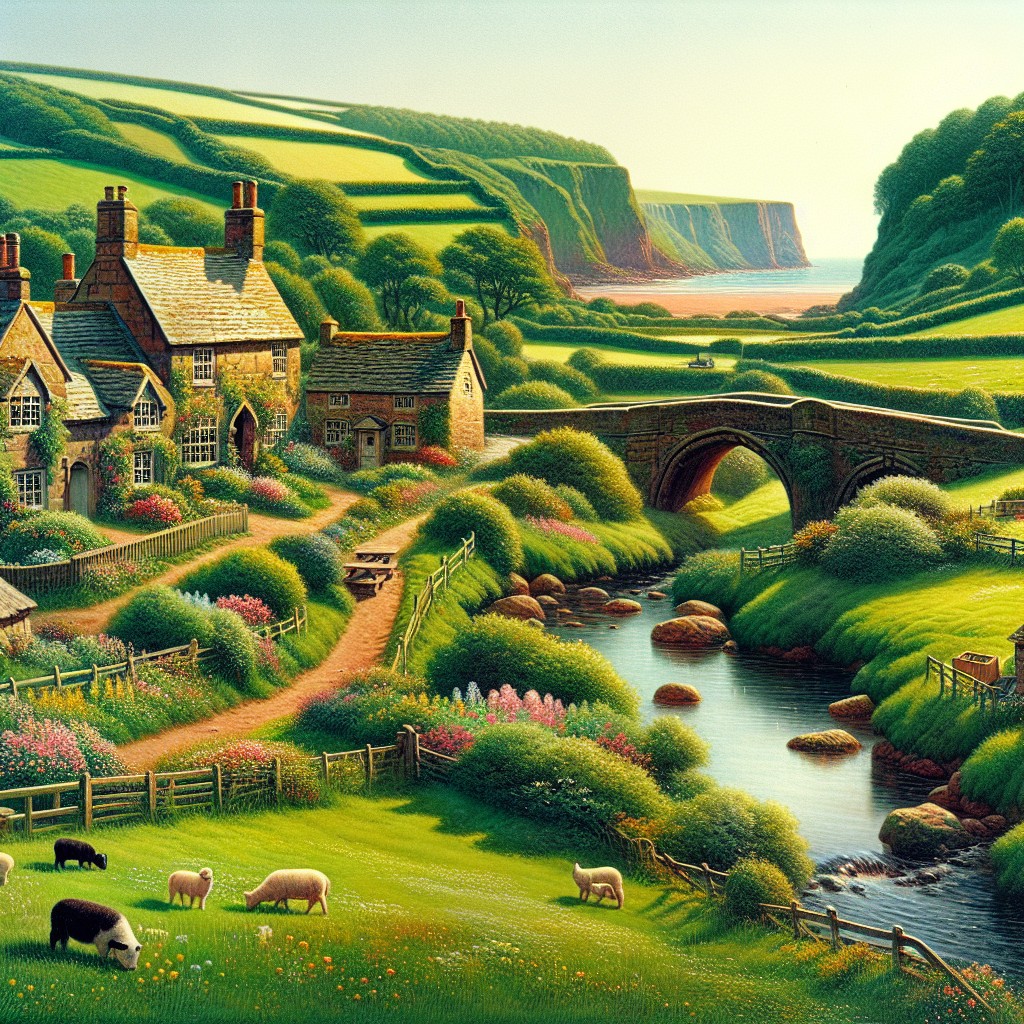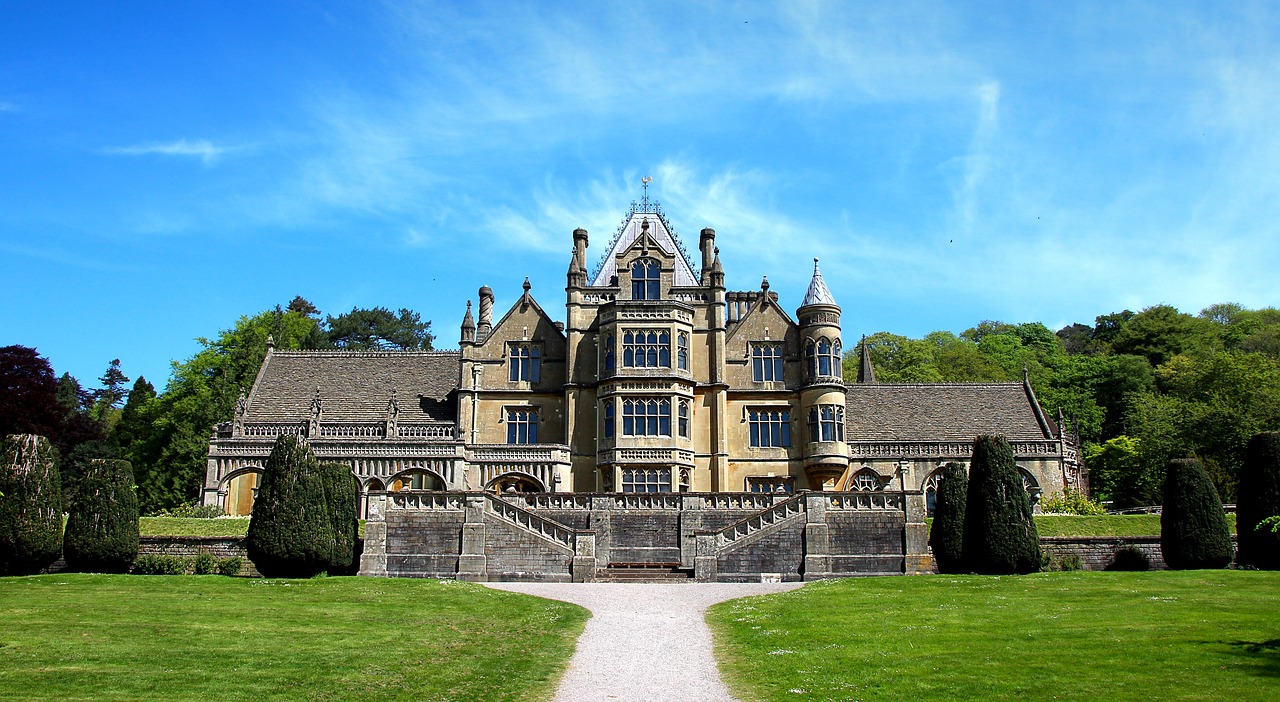
Located in the southwest of England, Devon is a county known for its stunning natural beauty and rich history. With its diverse landscape, from the rolling hills of Dartmoor to the dramatic cliffs of the Jurassic Coast, Devon offers visitors a wide range of outdoor activities and breathtaking scenery. In addition to its natural attractions, Devon is also home to a wealth of historical landmarks and architectural treasures. In this post, we will explore the geography, history, architecture, cuisine, festivals, beaches, outdoor activities, wildlife, and towns and cities of Devon. By the end of this article, readers will have a comprehensive understanding of what makes Devon such a special place to visit.
Summary
- Devon is a land of natural beauty and rich history, making it a popular destination for tourists.
- From the Exmoor National Park to the Jurassic Coast, Devon’s geography offers a diverse range of landscapes to explore.
- Devon’s history spans from prehistoric times to the present day, with many historical sites and landmarks to discover.
- Devon’s architecture is a blend of medieval, Georgian, and Victorian styles, adding to the charm of the region.
- Devon’s cuisine is a highlight, with cream teas and seafood delights being popular dishes to try.
Devon’s Geography: From the Exmoor National Park to the Jurassic Coast
Devon’s geography is incredibly diverse, offering visitors a wide range of landscapes to explore. The county is home to two national parks: Dartmoor and Exmoor. Dartmoor National Park is known for its rugged granite tors, vast open moorland, and ancient woodlands. It is a paradise for hikers and nature lovers, with numerous walking trails and opportunities for wildlife spotting. Exmoor National Park, on the other hand, is characterized by its rolling hills, deep valleys, and wild coastline. It is a haven for outdoor enthusiasts, with plenty of opportunities for hiking, cycling, and horse riding.
Another highlight of Devon’s geography is the Jurassic Coast, a UNESCO World Heritage Site that stretches for 95 miles along the county’s coastline. This stretch of coastline is famous for its dramatic cliffs, hidden coves, and fossil-rich beaches. Visitors can explore the unique geology of the area by taking part in fossil hunting expeditions or simply enjoying a leisurely walk along the coastal path.
Devon’s History: From Prehistoric Times to the Present Day
Devon has a rich and fascinating history that dates back thousands of years. The county has been inhabited since prehistoric times, and evidence of early human settlements can still be seen today. One of the most famous prehistoric sites in Devon is the Stone Age burial chamber known as Grimspound, located on Dartmoor. This ancient monument provides a glimpse into the lives of the people who lived in the area over 4,000 years ago.
Throughout its history, Devon has been shaped by various historical events and influences. The county played a significant role in the English Civil War, with several key battles taking place on its soil. The city of Plymouth, in particular, was heavily involved in the conflict and was a major naval base during the time of Sir Francis Drake.
Devon’s Architecture: A Blend of Medieval, Georgian, and Victorian Styles
Devon’s architecture is a reflection of its rich history and diverse influences. The county is home to a wide range of architectural styles, from medieval castles and churches to Georgian townhouses and Victorian villas.
One of the most iconic examples of medieval architecture in Devon is Exeter Cathedral. This magnificent cathedral dates back to the 12th century and features stunning Gothic architecture, including intricate stone carvings and beautiful stained glass windows.
In contrast to the medieval buildings, Devon is also home to a number of Georgian townhouses and buildings. The city of Exeter has a wealth of Georgian architecture, with many streets lined with elegant terraced houses and grand public buildings.
During the Victorian era, Devon saw a boom in construction, with many grand country houses and seaside villas being built. One notable example is Powderham Castle, located near Exeter. This stunning castle is still privately owned by the Courtenay family and is open to the public for tours.
Devon’s Cuisine: From Cream Teas to Seafood Delights
Devon’s cuisine is a reflection of its coastal location and agricultural heritage. The county is known for its fresh seafood, with dishes such as Devon crab, mussels, and scallops being popular choices. Visitors to Devon can enjoy a wide range of seafood delights, from traditional fish and chips to gourmet seafood platters.
In addition to its seafood, Devon is also famous for its cream teas. A cream tea typically consists of scones served with clotted cream and strawberry jam, accompanied by a pot of tea. This quintessentially English treat is a must-try when visiting Devon and can be enjoyed in tearooms and cafes throughout the county.
Devon’s Festivals and Events: A Year-round Calendar of Celebrations
Devon is home to a vibrant calendar of festivals and events throughout the year. From cultural celebrations to historical reenactments, there is always something happening in the county.
One of the most popular events in Devon is the Dartmouth Royal Regatta, which takes place every August. This week-long event features a variety of activities, including sailing races, live music performances, and fireworks displays. It is a highlight of the summer calendar and attracts visitors from all over the country.
Another popular event in Devon is the Sidmouth Folk Festival, which celebrates traditional folk music and dance. This week-long festival takes place in August and features performances from both established artists and up-and-coming talent. Visitors can enjoy concerts, workshops, and ceilidhs, as well as street performances and parades.
Devon’s Beaches: Sun, Sand, and Surf on the South West Coast
Devon’s coastline is home to some of the most beautiful beaches in the UK. From sandy stretches perfect for sunbathing to rugged coves ideal for rock pooling, there is a beach to suit every taste.
One of the most popular beach destinations in Devon is Woolacombe Beach, located on the North Devon coast. This three-mile-long stretch of golden sand has been voted one of the best beaches in the UK and offers plenty of space for sunbathing, swimming, and surfing.
For those looking for a more secluded beach experience, Blackpool Sands is a hidden gem. This shingle beach is surrounded by wooded cliffs and offers stunning views of the coastline. It is a great spot for picnicking, swimming, and kayaking.
Devon’s Outdoor Activities: Hiking, Cycling, and Watersports Galore
Devon is a paradise for outdoor enthusiasts, with plenty of opportunities for hiking, cycling, and watersports. The county is crisscrossed with walking trails and cycling routes, offering visitors the chance to explore its stunning landscapes on foot or by bike.
One of the most popular hiking destinations in Devon is the South West Coast Path. This long-distance trail stretches for 630 miles along the coastline of southwest England and offers breathtaking views of the sea and cliffs. Visitors can choose to tackle a small section of the path or take on the challenge of completing the entire route.
For cyclists, Devon offers a variety of scenic routes, from gentle rides along country lanes to challenging mountain bike trails. The Tarka Trail is a popular choice for cyclists, as it follows the route taken by Tarka the Otter in Henry Williamson’s famous novel. The trail passes through beautiful countryside and offers stunning views of the River Taw.
Devon’s Wildlife: A Haven for Rare and Endangered Species
Devon is home to a diverse range of wildlife, including several rare and endangered species. The county’s varied habitats, from moorland to woodland to coastline, provide a haven for many different types of animals and plants.
One of the most iconic species found in Devon is the Dartmoor pony. These hardy ponies have roamed the moorland for centuries and are a symbol of the area. Visitors to Dartmoor National Park can often spot these ponies grazing on the open moorland.
Devon is also home to a number of rare bird species, including the cirl bunting and the European nightjar. These birds can be found in the county’s woodlands and heathlands and are a delight for birdwatchers.
Devon’s Towns and Cities: From Exeter to Plymouth, Discover the Best of Devon’s Urban Life.
Devon is home to several vibrant towns and cities, each with its own unique character and attractions. The city of Exeter is the county’s capital and offers a mix of history, culture, and shopping. Visitors can explore the city’s medieval cathedral, wander through its historic quayside, or browse the independent shops in its vibrant city center.
Plymouth is another major city in Devon and is known for its maritime history. The city played a significant role in the voyages of exploration during the Elizabethan era and is home to the Mayflower Steps, where the Pilgrims set sail for America in 1620. Visitors to Plymouth can learn about the city’s naval heritage at the National Marine Aquarium or take a boat trip around Plymouth Sound.
Devon is a county that offers something for everyone. Whether you are interested in exploring its stunning natural landscapes, delving into its rich history, or indulging in its delicious cuisine, there is plenty to see and do in this beautiful part of England. From the rugged moors of Dartmoor to the sandy beaches of the Jurassic Coast, Devon’s diverse geography provides a wealth of outdoor activities and breathtaking scenery. Its towns and cities are home to a wealth of historical landmarks and architectural treasures, while its festivals and events offer a year-round calendar of celebrations. So why not plan a visit to Devon and discover all that this beautiful and historic region has to offer?
FAQs
What is Devon?
Devon is a county located in the southwest of England. It is bordered by Cornwall to the west, Somerset to the northeast, and Dorset to the east.
What is the population of Devon?
As of 2021, the estimated population of Devon is around 1.2 million people.
What is the capital of Devon?
The county town and administrative center of Devon is Exeter.
What are some popular tourist attractions in Devon?
Devon is known for its beautiful coastline, national parks, and historic sites. Some popular tourist attractions include Dartmoor National Park, Exeter Cathedral, the Jurassic Coast, and the Eden Project.
What is the climate like in Devon?
Devon has a mild and temperate climate, with relatively warm summers and mild winters. The county receives a moderate amount of rainfall throughout the year.
What is the economy of Devon based on?
Devon’s economy is diverse, with industries such as tourism, agriculture, and manufacturing playing important roles. The county is also home to several universities and research institutions, which contribute to its knowledge-based economy.
What is the transportation system like in Devon?
Devon has a well-developed transportation system, with several major roads and highways connecting the county to other parts of the UK. The county is also served by several airports, including Exeter International Airport and Plymouth City Airport. Additionally, there are several train stations and bus services that operate throughout the county.




